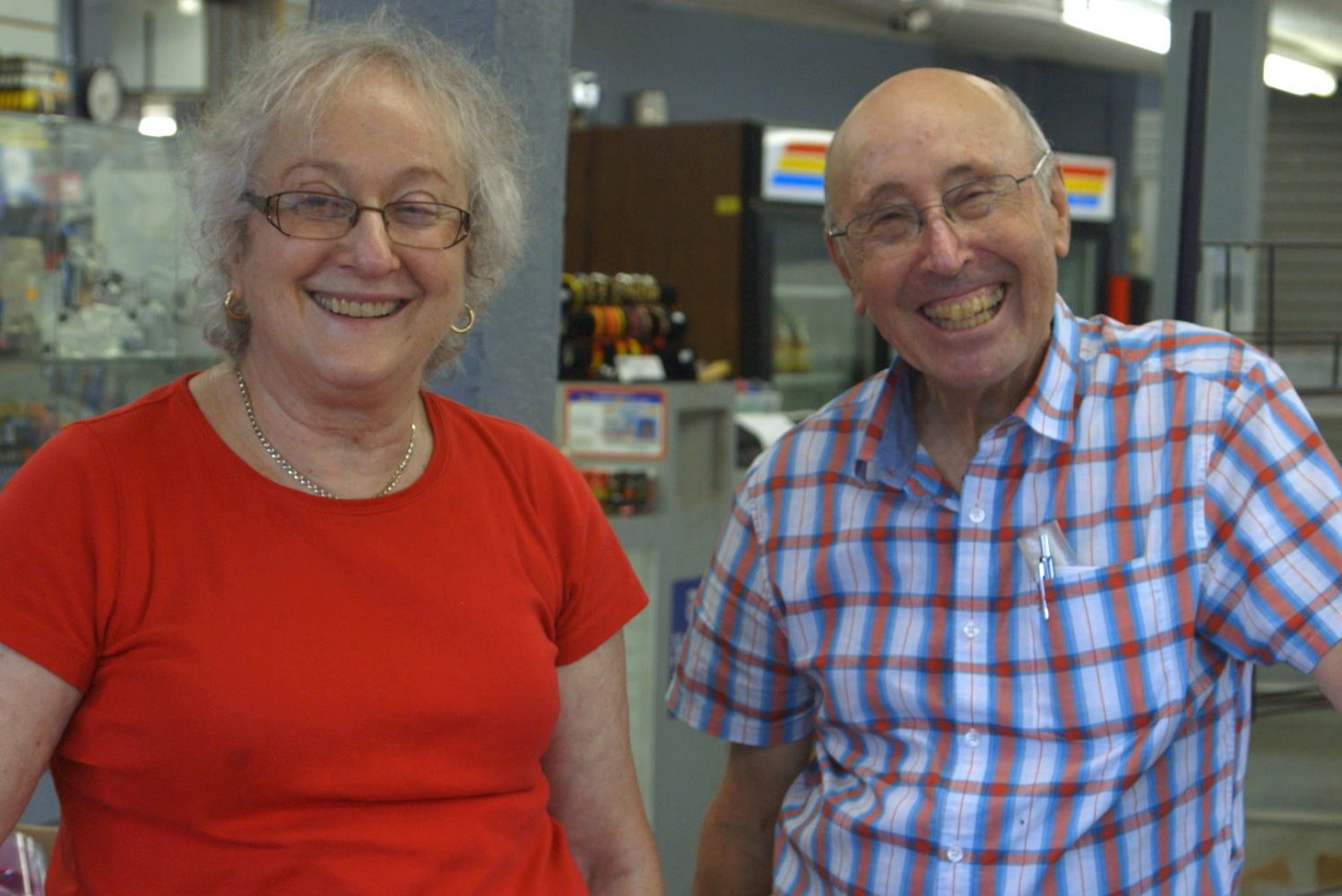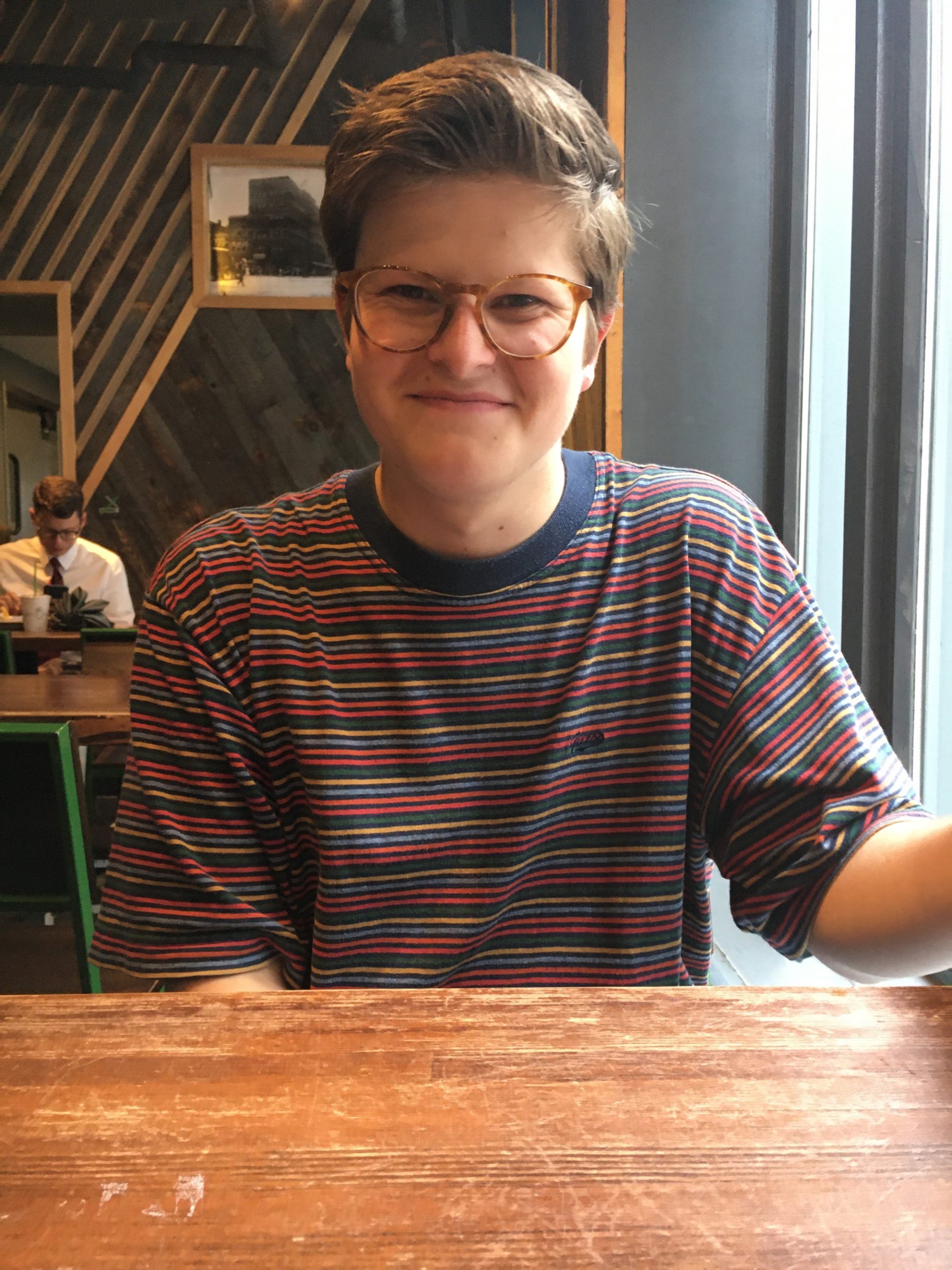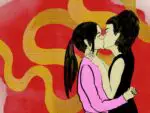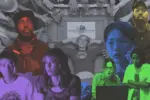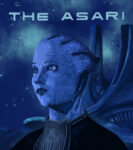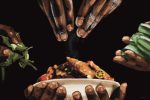Growing up in Los Angeles, California, Rachel Mason and her two siblings told neighbors and classmates that their parents ran a bookstore. Yes, the couple did in fact run such a business, but they kept a crucial detail from their children: It was one of the substantial distributors of hardcore gay porn in their city.
The documentary begins with narrative layering, where young Rachel Mason, the film’s director, wields a video recorder and documents each family member in their kitchen. Gauzy and saturated, the image creates a veil of nostalgia for the audience to recognize. However, within this quick, inward look, viewers instantly understand the familial dynamics of the Mason household.
Karen, the family’s matriarch, questions her daughter about why she continues to film. Meanwhile, Barry laughs along with his daughter’s antics and dons a toothy smile. Starting off with a home video that outwardly depicts a traditional, all-American family breathes life into the irony of Mason’s story.
Reinforcing the Family Unit: The LGBTQ community
She threads the idea of convergence into a larger, cultural perspective, working to illustrate that Circus of Books did more than market sex toys, gay pornography and magazines: It helped underpin gay life in West Hollywood at the time.
Mason debuted “Circus of Books” at Tribeca Film Festival back in 2019, but given the queer community’s ongoing social and political struggle, the film consistently reasserts its significance by breathing life into a group often overlooked and disregarded by the greater population.
Into the late 20th century, queer men, typically confined to the social shadows, ran risks of losing jobs or homes when revealing their sexuality to the public eye. So, seeking a store like Circus of Books serves as a protest, allowing men to gather and celebrate an identity that was legally and socially persecuted.
Before gay dating apps like Grindr or Scruff, they resorted to the winding aisles of stores like Circus of Books to find others with similar sexual interests, an act colloquially known as “cruising.” So, in addition to operating as a queer safe haven, the space allowed men to broadly understand their identities too.
Don Normal, a former customer, spoke to the impact of “[seeing] men naked and unafraid … that gave us a lot of pride.”
Lurking peril followed not only the men in search of pornographic material, but also those who distributed. Thus, Karen and Barry Mason strived to ensure the line between their public and private lives would never intersect. Inevitably, their daughter slowly works to highlight an intersection between the two.
The Line Bleeds
Pornography websites may rest easily at our fingertips today, but Mason unearths the trials and tribulations that accompanied such a lucrative, yet dangerous, business at the time. Closing a private window or switching off a smartphone seems easy enough, but 30 years ago, searching for adult content was not as simple as today. Producing material goods, be it magazines or videos, required physical shipment and trustworthy business partners.
Larry Flynt, president of Larry Flynt Productions, rose to prominence after producing and creating adult content, namely Hustler Magazine, now valued at hundreds of millions of dollars. When Flynt sought distributors, Barry Mason dialed the number provided in an advertisement, and the rest was history.
What better candidates than a conventional Jewish couple raising three children?
Unconventionality hardly encapsulates the Masons’ business approach, but Karen Mason notes that “If you don’t have the luxury of earning a living, then you’re going to have to figure out what you’re going to do.”
The couple steered conversations with friends carefully, sure to prevent anyone from truly understanding the nature of their business. While Barry Mason remarks that “The whole operation was pretty goofy,” the film depicts his wife trapped between two spheres of her life: her personal one — which included synagogue, her kids and a fairly conservative lifestyle — and the other, which quite plainly, was her adult bookstore.
When her youngest son, Josh, came out as gay during his senior year of college, she illiberally replied, “God must be punishing me.” Yet, in the last part of Mason’s documentary, she shows her parents’ efforts to do right by their son: attending Parents and Friends of Lesbians and Gays chapter meetings, and eventually becoming facilitators to help other families.
This arc develops rapidly and, at first glance, may come off as an afterthought, but Mason ultimately works to highlight her parents’ willingness to change instead of lingering on any moral shortcomings. Once more, it spotlights the give and take relationship the owners shared with Circus of Books. After giving the queer community so much, Mason maps out an incredible payback.
“Death Knell of the Gay Bar”
Before the internet came around, closeted members of the LGBTQ community resorted to a rare magazine clipping or brief encyclopedia entries as a means of fully understanding their identity. Homosexuality made its way into popular culture by the 1990s, but even then, bills like the Defense of Marriage Act emphasized that the United States government had no intention of giving queer people a seat at the table.
Chatrooms and smartphone apps have granted a safer space for closeted people to connect with others going through similar processes. Alaska, a drag performer and former employee of Circus of Books, highlights that with this technological shift comes a struggle for the younger generation to have face-to-face interaction. As a result, closeted life becomes even more trivial.
First amendment attorney John Weston added that this technological shift “could also be considered the death knell of the gay bar because you don’t need to go to a bar to meet someone anymore.”
When Circus of Books permanently closed its doors in early 2019, a definitive era for the LGBTQ community came to a close. Rather than a daunting presage, Karen Mason believes that the bookstore simply “served its purpose … I’ll be happy when its closing.”
In simple terms, maybe the store did exactly what it needed to do: offer a safe space for the queer community when hardly any others did. If the status quo no longer necessitates the existence of a store like Circus of Books, then perhaps the quality of life for the LGBTQ community is exponentially better. Change is slow-growing, but certain.
“No one has ever given us anything we haven’t had to fight for,” said LGBTQ rights activist Alexei Romanoff. “I have seen so many changes in this world. For the better and for the worse. But I have hope, and there is hope.”


